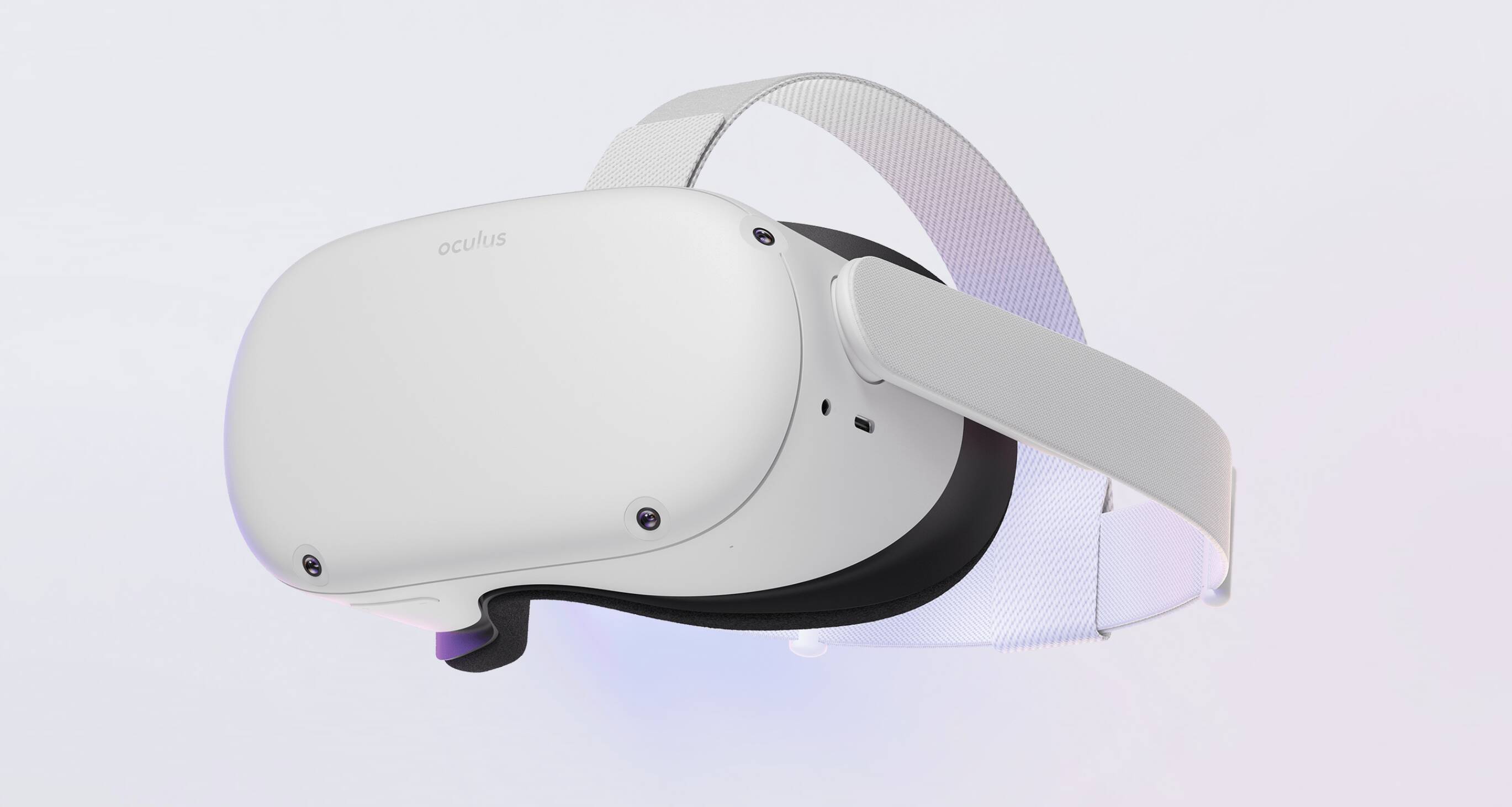Facebook Tries To Save Face By Recalling Itch-inducing Oculus Quest 2 VR Headset Foam

Before Facebook can "bring the metaverse to life," it will first have to deal with customers dismantling their Oculus Quest 2 VR headsets for repairs because their faces have been irritated.
The web titan's Oculus subsidiary on Tuesday issued a voluntary recall notice in conjunction with the US Consumer Product Safety Commission to replace the removable foam facial interfaces in Oculus Quest 2 virtual reality headsets.
"We are doing so in response to reports from a very small percentage of users who have experienced skin irritation where the foam portion of the facial interface rests on the skin," Oculus said in a statement on its website.
The recall covers about four million units, plus 172,600 in Canada. It applies to headset serial numbers that start with “1WMHH” and end with a number below “1264.”
"This voluntary recall does not apply to the headset itself. It only applies to the Quest 2 removable facial interface that comes with Quest 2 and is also sold separately, including as part of the Fit Pack," a Facebook spokesperson said in an email to The Register.
Everyone who already owns a Quest 2 or a Fit Pack can receive a free silicone cover that fits over the Quest 2 foam facial interface. You don't have to return your headset or your removable foam facial interface to receive a Quest 2 Silicone Cover."
Oculus has also suspended sales of all Quest 2 packages worldwide to coordinate with global regulators.
Thousands of customers irritated
According to the USCPSC, Facebook has received roughly 5,716 reports of skin irritation and about 45 reports of customers who required medical attention. According to the mega-corporation, those affected by the skin irritation amounts to about 0.01 per cent of people using Quest 2 kit.
"The foam facial interfaces can cause facial skin irritation and reactions including rashes, swelling, burning, itching, hives, and bumps," the USCPSC said in its notice.
People have been posting pictures of skin problems on social media that they attribute to Oculus Quest 2 VR headsets.
- Facebook granted patent for 'artificial reality' baseball cap. Repeat, an 'artificial reality' baseball cap
- It's wild the lengths Facebook engineers will go to find new ways to show you inane ads about tat: This time, AR...
- Oculus owners told not only to get Facebook accounts, purchases will be wiped if they ever leave social network
- Not content with distorting actual reality, Facebook now wants to build a digital layer for the world
On June 6, 2021, the Australian Competition & Consumer Commission issued a recall of Oculus Quest 2 VR headsets in that country, also due to skin irritation caused by the headset's foam interface.
According to Facebook's spokesperson, the facial interface is made principally of polyurethane foam. The headset is manufactured in China.
In an April 15 update to a December 20, 2020 post covering initial reports of skin irritation, Oculus said it didn't find any contamination or unexpected substances in its manufacturing process but acknowledged that chemicals might be to blame.
"We identified a few trace substances that are normally present in the manufacturing process which could contribute to skin discomfort, and while these were already at levels below the industry standard, out of an abundance of caution we changed our process to reduce them even further," Oculus said. "We’ve confirmed with expert dermatologists and toxicologists that these levels are considered extremely low."
In a separate post, Andrew Bosworth, head of Facebook Reality Labs, said the company took reports of skin irritation seriously as soon as it learned about them, and began investigating with the help of dermatologists and toxicologists in December last year. And skin reactions of this sort are common, he suggests.
"These experts have advised that skin irritation can occur in some segments of the population from many household items – even things like tomatoes or shampoo – and that the rates we’ve seen are in line with expectations," he said.
Facebook intends to resume selling Quest 2 headsets with a silicone cover starting August 24. ®
From Chip War To Cloud War: The Next Frontier In Global Tech Competition
The global chip war, characterized by intense competition among nations and corporations for supremacy in semiconductor ... Read more
The High Stakes Of Tech Regulation: Security Risks And Market Dynamics
The influence of tech giants in the global economy continues to grow, raising crucial questions about how to balance sec... Read more
The Tyranny Of Instagram Interiors: Why It's Time To Break Free From Algorithm-Driven Aesthetics
Instagram has become a dominant force in shaping interior design trends, offering a seemingly endless stream of inspirat... Read more
The Data Crunch In AI: Strategies For Sustainability
Exploring solutions to the imminent exhaustion of internet data for AI training.As the artificial intelligence (AI) indu... Read more
Google Abandons Four-Year Effort To Remove Cookies From Chrome Browser
After four years of dedicated effort, Google has decided to abandon its plan to remove third-party cookies from its Chro... Read more
LinkedIn Embraces AI And Gamification To Drive User Engagement And Revenue
In an effort to tackle slowing revenue growth and enhance user engagement, LinkedIn is turning to artificial intelligenc... Read more

